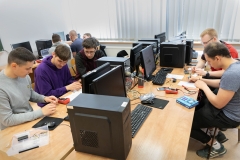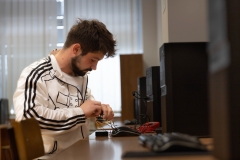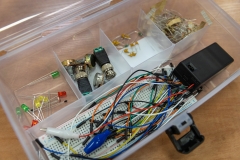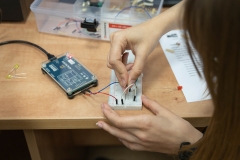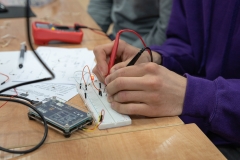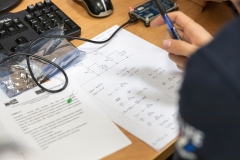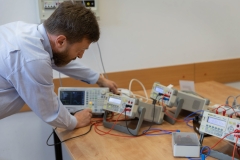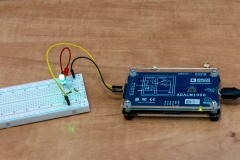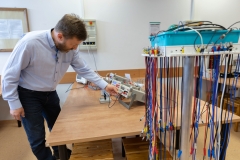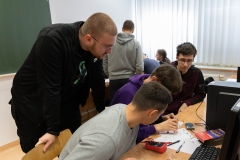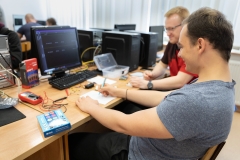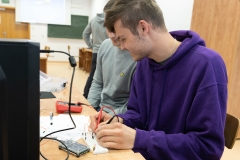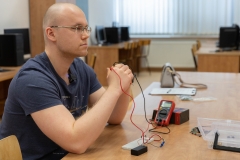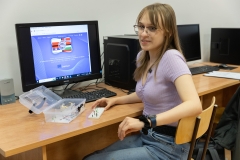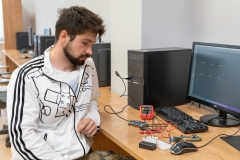How to motivate students to be active? A new approach to education as a result of the ICT_EDUPAND project
19-05-2023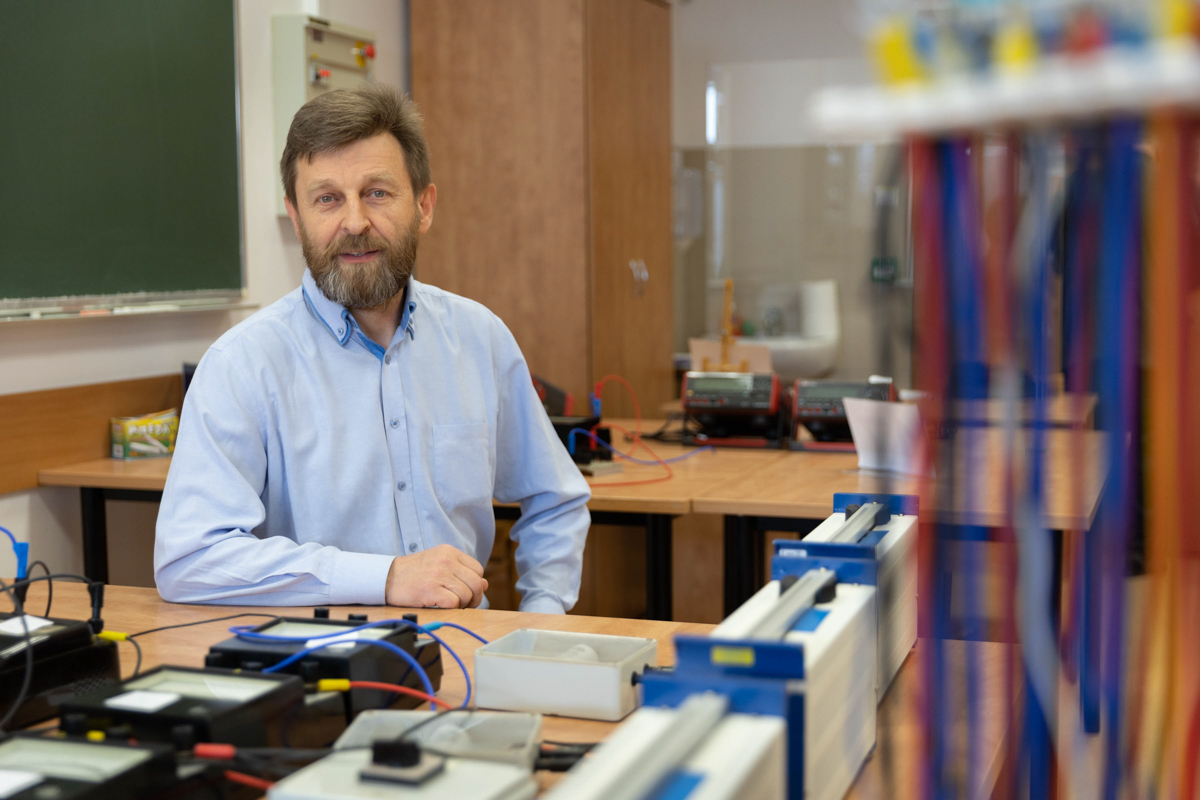
Whether this has been successful will be judged during a meeting to disseminate the results of the project, which full name is “Holistic approach towards problem-based ICT education based on international cooperation in pandemic conditions.” The presentation of the developed materials along with their discussion and presentation of various forms of industry involvement in the didactic process will take place on 22 May at the Faculty of Electrical Engineering of Bialystok University of Technology (45 D Wiejska Street, room 007). It will start at 10:15 am.
The international ICT_EDUPAND project is one of three that the university proposed in an additional call for proposals announced in the Erasmus+ programme, in response to the pandemic and school closures. The university’s initiatives were among the top 15 highest rated! For their implementation, Bialystok University of Technology obtained a record amount of 750 thousand euros. The funds were provided by the National Agency of the Erasmus+ Programme under Action 2, Strategic Partnerships for Digital Education in the Higher Education Sector.
The leader of the ICT_EDUPAND project is the Faculty of Electrical Engineering of Bialystok University of Technology. Partners – universities from Norway, Serbia and Bulgaria, and local companies from the economic environment of these institutions. The entire project is coordinated by Assoc. Prof. Jaroslaw Makal, PhD, Eng.
– We started the project in June 2021 and finished in May 2023. We spent these two years intensively, because there was really a lot of work. In the project, we benefit from the experience of our Norwegian colleagues, who have introduced at home an innovative curriculum based on the problem-based method. And although the method has been known for 40 years – there are even universities in the Netherlands and Denmark that educate students exclusively based on this method – in the vast majority of universities the traditional way of education is preferred. And so the Norwegian partners taught us to use the Problem Based Learning (PBL) method, and we adapted it to selected technical subjects; for now only two: Circuit Theory and Internet of Things, – explains Assoc. Prof. Jarosław Makal, PhD, Eng, coordinator of the ICT_EDUPAND project and lecturer at the Faculty of Electrical Engineering of Bialystok University of Technology.
In the Problem Based Learning (PBL) method, the traditional way of teaching, based on listening to lectures and doing exercises, is changed to a more engaging way of working in small groups with students. This motivates the student much more in class. Students gain competencies and qualifications by independently solving the problem set before them.
During the stages of the ICT_EDUPAND project, the international team of lecturers first discussed what educational materials and in what form produce the best results under pandemic conditions. Then it developed ways to organize calculus exercises and methods for objectively assessing students’ knowledge and skills. They also produced a jointly edited collection of the best student laboratory projects, which was preceded by a description of the working conditions in each laboratory.
During the two years of the project’s implementation, more than a dozen teacher training workshops were conducted, many original digital teaching materials were created, the project method was introduced in the teaching of selected subjects, a multimedia collection of practical tasks in the basics of electrical engineering and electronics was developed, and five digital book publications were produced.
Students of the Faculty of Electrical Engineering of Bialystok University of Technology were the first to benefit from the results of this work. The idea was primarily to introduce the developed method in selected classes at the Faculty of Electrical Engineering (first cycle engineering studies). The classes were attended by 24 students of the practical course and 40 of the general academic course.
The project “Holistic approach towards problem-based ICT education based on international cooperation in pandemic conditions” (Erasmus+ 2020-1-PL01-KA226-HE-096196) was implemented by:
- Faculty of Electrical Engineering of Bialystok University of Technology (project coordinator)
- Norwegian University of Science and Technology in Trondheim (Norway)
- University of Ruse „Angel Kanchev” in Ruse (Bulgaria)
- University of Nis (Serbia)
New to the project is the use of a holistic approach, which includes a set of activities such as:
- teaching methodology applied for the first time already in the first semester of technical studies,
- modification of course curricula taking into account the correlation of mathematical content with vocational subjects,
- editing digital materials (textbooks, reports, assignments, exercises, tests, etc.),
- development of textbooks and training of university teachers to involve them in the new way of teaching.
Project duration: 24 months (01.06.2021-31.05.2023)
Total value of the project budget: EUR 234,700.00 (more than 1 million zlotys)
Project website: ictedupand.pb.edu.pl
by mr

